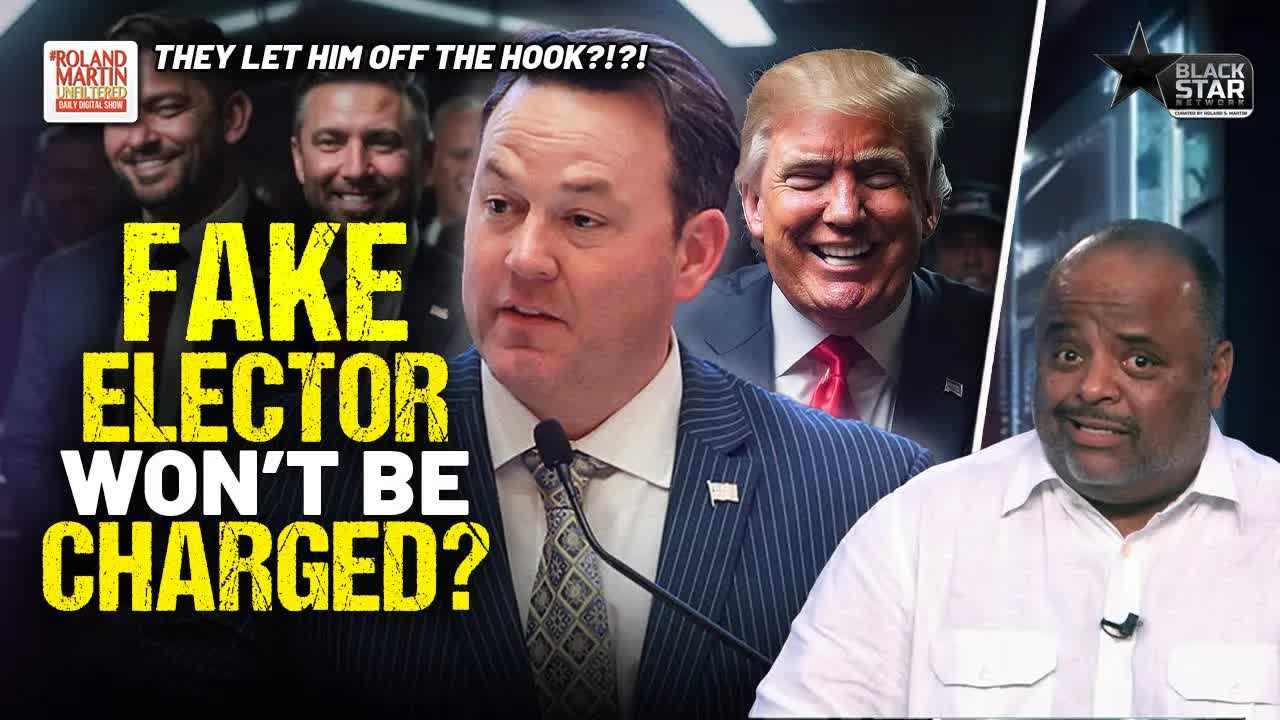In a surprising turn of events, the Lieutenant Governor of Georgia, Burt Jones, has managed to evade prosecution related to the controversial Trump election subversion case.
This decision comes from Pete Skandalakis, the self-appointed special prosecutor, who determined that Jones would not face charges.
This development raises questions about accountability and the integrity of the legal process in Georgia.
The backdrop to this situation involves a lawsuit filed by a group of Black attorneys against Skandalakis, aimed at compelling him to fulfill what they argue is a non-discretionary duty.
Joining us to unpack this complex legal scenario is Attorney Wayne Kendall from Fayetteville, Georgia.
His insights shed light on why Jones appears to be getting a pass while others may not be so fortunate.
Kendall explains that although Jones has not been completely exonerated, the recent ruling by Skandalakis has placed him in a favorable position.
The prosecutor’s decision not to pursue charges stems from a conflict of interest that could undermine the integrity of the investigation.
As the president of the Georgia Senate, Jones holds significant power over the state budget, which includes Skandalakis’s salary, creating a direct financial link between the two.
This raises a pivotal question: how can someone with such a vested interest be trusted to prosecute another individual?
Kendall argues that this financial dependency disqualifies Skandalakis from making an unbiased judgment regarding Jones’s actions.
In effect, the Lieutenant Governor is seen as a paymaster, complicating the dynamics of the case significantly.
Turning to Skandalakis’s track record, it becomes clear that he has a history of not prosecuting government officials.
For instance, he previously served as the special prosecutor in the Rayshard Brooks case, where the circumstances surrounding police use of force were heavily scrutinized.
His reluctance to bring charges in similar cases raises concerns about his ability to handle politically sensitive matters impartially.
Kendall elaborates on other instances where Skandalakis opted not to indict law enforcement officers involved in controversial shootings.
These include cases where deputies faced scrutiny for their actions but ultimately had their charges dismissed under Skandalakis’s watch.
Given this history, many observers anticipated that he would likely refrain from pursuing charges against Jones.
Despite the current situation, the legal battle is far from over.
A court case is still pending that seeks to determine whether Skandalakis should be disqualified from this investigation altogether.
Recently, a hearing was held to address a motion to dismiss the case, but a ruling has yet to be issued.
If the judge rules in favor of the plaintiffs, the next steps could involve a deeper examination of Skandalakis’s connections to the Lieutenant Governor and whether they compromise his ability to serve as a fair prosecutor.
The stakes are high, as this decision could set a precedent for how similar cases are handled in the future.
As the legal community watches closely, the implications of this case extend beyond Georgia.
It raises broader questions about the accountability of public officials and the potential for conflicts of interest to undermine justice.
The outcome could serve as a litmus test for how political figures are treated under the law.
In a separate but equally pressing matter, former President Donald Trump is facing mounting criticism from those who once served alongside him.
High-profile figures, including his former vice president and defense secretary, have publicly denounced his fitness to lead again, emphasizing the risks he poses to national security and democratic values.
These voices, once loyal to Trump, now warn of the dangers he represents, underscoring a profound shift in perception among key members of his administration.
Their statements reflect a growing consensus that Trump’s actions could jeopardize both the safety of American troops and the nation’s democratic framework.
As the legal and political landscapes continue to evolve, the intersection of these cases highlights the ongoing struggles for accountability and ethical governance in the United States.
The developments in Georgia and the criticisms of Trump signal a critical moment for American democracy, one that demands vigilance and engagement from all citizens.































